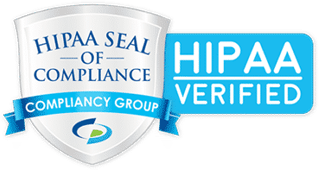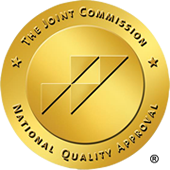Cocaine Rehab Center in Texas
At Origins Texas, we understand the challenges of overcoming cocaine addiction and provide a comprehensive drug addiction treatment that includes detox, residential care, outpatient services, and aftercare.
Our goal is to support individuals throughout every phase of their recovery journey, providing them with the tools and therapies they need to heal and build a healthier future.
Cocaine Addiction in Texas
Cocaine use remains a significant public health issue in the United States, including in Texas. While the opioid crisis often dominates headlines, cocaine is still widely used, and its potential for addiction and overdose remains high.

According to the National Survey on Drug Use and Health (NSDUH), nearly 4.8 million Americans aged 12 or older reported using cocaine in a recent survey. In Texas, cocaine continues to be one of the most commonly abused drugs, particularly in larger metropolitan areas like Houston, and Austin.
Additionally, data from the Texas Department of State Health Services shows that cocaine is involved in a significant percentage of emergency room visits related to drug use. The potent stimulant is frequently associated with severe health complications, including heart attacks, strokes, and seizures, which can occur even in first-time users.
Cocaine is a stimulant drug derived from the leaves of the coca plant, native to South America. It is commonly used as a recreational drug for its stimulating effects, which include increased energy, heightened alertness, and euphoria. However, these effects are short-lived and often followed by intense cravings for more of the drug.
Cocaine is typically found in two forms:
- Powdered cocaine: This form is often snorted or dissolved in water and injected.
- Crack cocaine: This is a processed form of cocaine that is smoked and produces a more intense, but shorter-lasting, high.
Regardless of how it’s used, cocaine is illegal in the United States and classified as a Schedule II drug, meaning it has a high potential for abuse and addiction.
Cocaine addiction can develop quickly due to the drug’s intense and immediate effects on the brain. The signs of cocaine use and addiction can vary depending on the individual, but common indicators include:
- Increased energy and restlessness
- Dilated pupils
- Decreased need for sleep
- Loss of appetite
- Elevated mood or euphoria
- Excessive talkativeness
- Nosebleeds (from snorting)
- Track marks (from injecting)
- Burn marks on lips or fingers (from smoking crack cocaine)
Over time, individuals struggling with cocaine addiction may experience more severe symptoms, including mood swings, paranoia, agitation, and erratic behavior. Social, legal, and financial problems often arise as the addiction progresses, as the need for cocaine begins to take precedence over other areas of life.
Is Addiction Impacting Your Life?
Take The First Step To True Healing Today!

How Does Cocaine Affect the Brain and Body?
Physically, cocaine acts as a stimulant, increasing heart rate, blood pressure, and body temperature. Over time, regular use of cocaine can cause significant damage to the cardiovascular system, as well as to the brain, lungs, and gastrointestinal tract. Chronic use also impairs cognitive function, leading to memory problems, difficulty concentrating, and increased risk of mental health disorders.
What Makes Cocaine Addictive?
As addiction takes hold, individuals often lose control over their drug use, continuing to seek cocaine even in the face of negative consequences. This loss of control is a hallmark of addiction, and it’s why professional treatment is so critical in helping people break free from the cycle of use and relapse.


What Are the Side Effects of Cocaine Addiction?
- Intense euphoria and energy
- Increased heart rate and blood pressure
- Heightened alertness
- Dilated pupils
- Decreased appetite
- Restlessness and agitation
- Paranoia or anxiety
- Increased risk of risky behaviors (e.g., unprotected sex, driving under the influence)
- Heart problems, including heart attacks
- Increased risk of stroke
- Respiratory issues (especially from smoking crack cocaine)
- Nasal damage or collapse (from snorting)
- Severe dental problems (from smoking crack)
- Liver and kidney damage
- Chronic paranoia, hallucinations, or psychosis
- Cognitive impairment, including memory loss
- Increased risk of depression and anxiety disorders
- Financial, social, and legal problems
Contact Our Admissions Team Today
Risk Factors for Cocaine Addiction
- Genetics: Individuals with a family history of addiction are more likely to develop a substance use disorder themselves.
- Mental Health Disorders: People with conditions such as depression, anxiety, or PTSD may use cocaine to self-medicate, which can lead to addiction.
- Social Environment: Peer pressure and environments where drug use is normalized can increase the risk of trying and becoming addicted to cocaine.
- Early Exposure to Drugs: Experimenting with drugs at a young age increases the likelihood of developing a substance use disorder later in life.
- Trauma or Stress: Individuals who have experienced significant trauma or ongoing stress may turn to cocaine to cope with their emotions.

Testimonials
![]()
![]()
![]()
![]()
![]()
Victoria H
I couldn’t recommend Origins more, I first attended their IOP program, then their residential program in South Padre. I’m writing this today a year and a half sober and going strong. Origins has literally saved my life in more ways than one.
![]()
![]()
![]()
![]()
![]()
Emily W
The clinicians are knowledgeable and skilled in a way that is always helpful and never harmful. This program brought me lasting healing and freedom.
![]()
![]()
![]()
![]()
![]()
Mary L
I cannot say enough about Hannah’s House. I entered broken, tired and far more sick than I realized. I was treated with kindness, love, patience and respect by all. I was so frightened to go but sad to leave, that speaks volumes. Thank you from the bottom of my heart to all who put me back together, I am eternally grateful.
![]()
![]()
![]()
![]()
![]()
Jack W
I struggled with my sobriety for over 5 years, but they were able to help me through the 12 steps of AA. I have been sober ever since my experience here. I’ll be hitting 2 years of sobriety in 22 days, thanks to this treatment center. No matter where you go, it’s all about your level of commitment towards gaining a better life ?
![]()
![]()
![]()
![]()
![]()
Jazmine R
Origins was exactly what I needed. The staff were incredibly knowledgeable, compassionate, and helpful. They come with years of experience and consider each individual they’re helping. If you’re looking for a facility that will truly care as much as you/your parents do, or are desperate for a miracle — I can’t recommend Origins more! ❤️

Cocaine Addiction Treatment at Origins Texas
Detox is the first and often most challenging step in overcoming cocaine addiction. During detox, individuals experience withdrawal symptoms as their bodies begin to adjust to functioning without the drug. These symptoms can be uncomfortable and even dangerous, making professional medical supervision essential.
Common withdrawal symptoms include:
- Fatigue and lethargy
- Depression and anxiety
- Intense cravings for cocaine
- Irritability and mood swings
- Difficulty concentrating or thinking clearly
- Sleep disturbances, including insomnia or hypersomnia
At Origins Texas, we provide a safe and supportive environment for drug detox, where individuals receive 24/7 medical care to manage withdrawal symptoms. Self-detoxing from cocaine is not recommended, as the psychological cravings can be overwhelming, leading to a high risk of relapse. Our medical team monitors each person’s physical and mental health throughout the detox process to ensure a safe and successful transition into the next phase of treatment.
After detox, individuals can transition into one of our treatment programs, which are designed to address both the physical and psychological aspects of addiction. We offer:
- Residential Treatment: A structured, immersive program where individuals live at our facility and participate in daily therapy, group activities, and wellness programs. Residential treatment is ideal for those who need intensive support and a break from their everyday environment to focus on recovery.
- Outpatient Treatment: For those who have completed residential care or do not require 24/7 supervision, our outpatient program offers flexibility while still providing access to individual and group therapy, addiction education, and relapse prevention strategies.
At Origins Texas, therapy is at the core of our addiction treatment programs. We offer a variety of therapies, including:
- Cognitive-behavioral therapy (CBT): Helps individuals identify and change the negative thought patterns and behaviors that contribute to addiction.
- Dialectical Behavior Therapy (DBT): Focuses on emotional regulation and building healthy coping mechanisms.
- Group Therapy: Provides peer support and accountability, helping individuals connect with others who understand their struggles.
- Holistic Therapy: Such as yoga, meditation, and art therapy, which promote overall wellness and stress reduction.
Nationally Recognized & Accredited




Help is Available at Our Cocaine Rehab Center
At Origins Texas, we provide a supportive environment where individuals can heal, develop new coping skills, and build a foundation for lasting recovery. Contact us today to learn more about our cocaine addiction treatment programs and start your journey toward a healthier, drug-free life.














